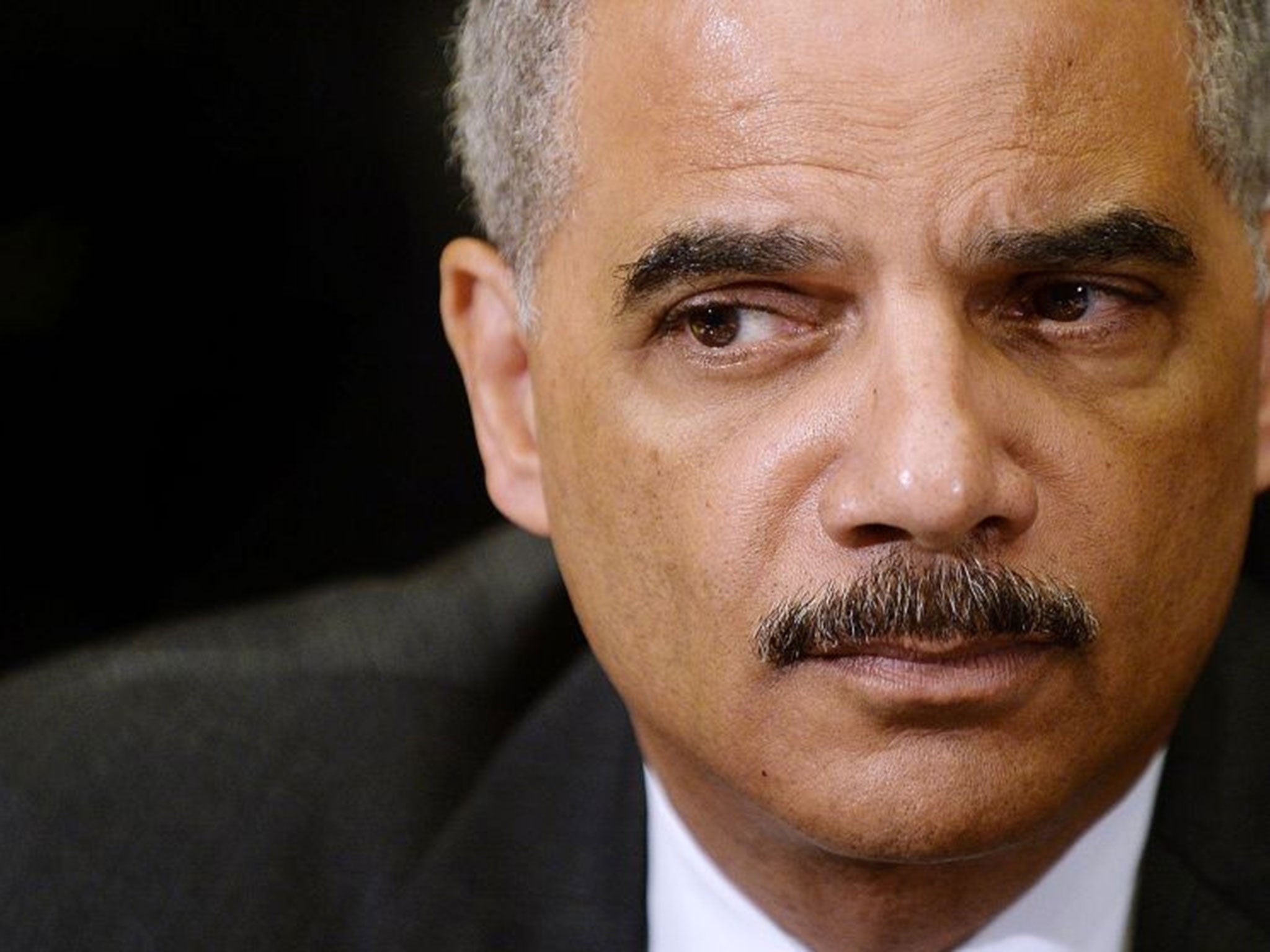Eric Holder resigns: US Attorney General quits post after a turbulent career
President Obama’s longest-serving senior cabinet member fought for civil rights and oversaw a reduction in prison inmates

Your support helps us to tell the story
From reproductive rights to climate change to Big Tech, The Independent is on the ground when the story is developing. Whether it's investigating the financials of Elon Musk's pro-Trump PAC or producing our latest documentary, 'The A Word', which shines a light on the American women fighting for reproductive rights, we know how important it is to parse out the facts from the messaging.
At such a critical moment in US history, we need reporters on the ground. Your donation allows us to keep sending journalists to speak to both sides of the story.
The Independent is trusted by Americans across the entire political spectrum. And unlike many other quality news outlets, we choose not to lock Americans out of our reporting and analysis with paywalls. We believe quality journalism should be available to everyone, paid for by those who can afford it.
Your support makes all the difference.The US Attorney General Eric Holder, the longest-serving of President Obama’s senior cabinet members, resigned today as the country’s top law enforcement official, depriving the administration of a doughty fighter for civil rights and for criminal justice reforms to reduce the bloated US prison population.
Mr Holder, 63, an African-American and former judge, who served as deputy Attorney General during Bill Clinton’s second term, has held his post since Mr Obama took office in 2009.
His resignation was, however, no surprise – he has occupied one of the most gruelling and controversy-prone jobs in government for longer than almost all his predecessors, and he made his intention plain in a New Yorker interview as long ago as February.
He made clear that he would stay on until a successor is in place and confirmed by Congress.
Mr Holder’s record is mixed, not helped by often implacable opposition from the Republican-controlled House of Representatives, and a conservative Supreme Court which has sought to curtail such pillars of civil rights law as affirmative action and parts of the landmark 1965 Voting Rights Act.
Despite widespread criticism of the military tribunals at Guantanamo Bay, Congress rebuffed his attempt to have Sheikh Khalid Mohammed and other organisers of the 9/11 attacks tried in ordinary federal court in New York.
Nor, for all the public clamour, did the Justice Department bring charges against leading Wall Street figures involved in the 2008 financial collapse.
Instead, in keeping with the Obama administration’s crackdown on government secrecy, Mr Holder has authorised prosecution of an unprecedented number of leakers, and ordered the seizure of reporters’ phone records, causing a media outcry.
He was also at the centre of a storm over a sting operation to catch gunsmugglers across the US border with Mexico that in 2012 prompted Republican calls for his resignation.
That fiasco paved the way for a House vote that found him in contempt of Congress, an indignity suffered by no previous US Attorney General.
His greatest setback, however, for a man who had sought to make civil rights the focus of his tenure, surely came in June 2013 as the Supreme Court struck down a key part of the Voting Rights Act, freeing southern states to change their own voting laws.
Mr Holder assailed the moves as encouraging racial discrimination, and has hit back by filing federal suits challenging restrictions brought in by Texas and other states.
More successful have been his efforts to make the US legal system less punitive for minorities. In 2013, he launched the “Smart on Crime” initiative by the Justice Department, most notably reducing punishment for low-level, non-violent drug offences.
“For far too long – under well-intentioned policies designed to be ‘tough’ on criminals – our system has perpetuated a destructive cycle of poverty, criminality and incarceration that has trapped countless people and weakened entire communities, particularly communities of colour,” Mr Holder declared this week.
The results are already visible. In 12 months, the federal prison population has dropped by 4,800, the first such decline since 1980.
Join our commenting forum
Join thought-provoking conversations, follow other Independent readers and see their replies
Comments